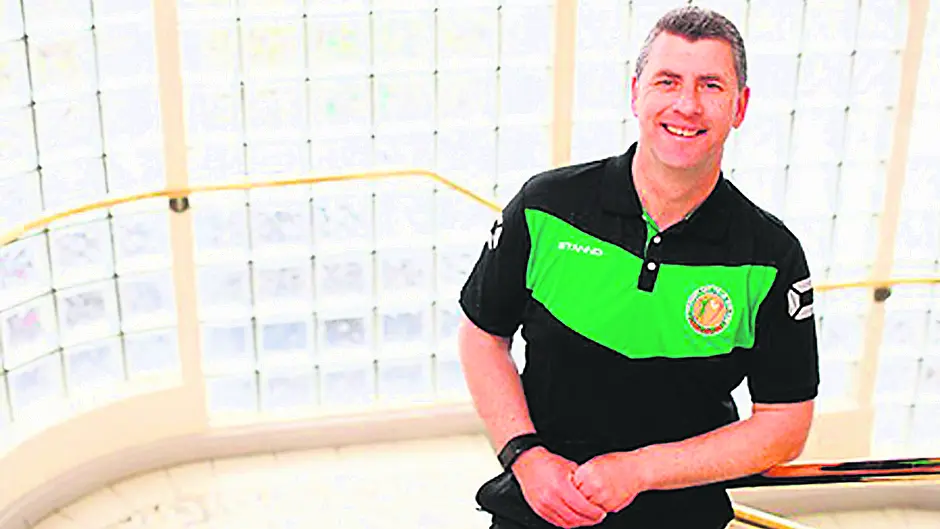BY GORDAN DEEGAN
ONGOING tension between Rosscarbery priest Fr John McCarthy and long-serving sacristan Michael Keohane was a contributory factor to his unfair dismissal.
This was stated at a Workplace Relations Commission (WRC) hearing which found Fr McCarthy had unfairly dismissed the sacristan after the Covid-19 pandemic put a hole in local Church finances.
WRC adjudicator Patsy Doyle upheld Michael Keohane’s claim that he was unfairly dismissed by way of redundancy by Fr John McCarthy in June 2020.
Ms Doyle has ordered that Fr McCarthy reinstate Mr Keohane to his former role of parish sacristan in Rosscarbery, despite what she described as the ‘protestations’ of Fr McCarthy to re-instatement.
After the hearing last week, Fr McCarthy said that he would not be commenting on the outcome of the WRC case ‘as we are awaiting legal advice as to whether or not to appeal the decision (to the Labour Court).’
Mr Keohane, who acted as sacristan for the parish for 26 years, told the WRC hearing that he was ‘shocked and very upset’ to receive a registered letter confirming his dismissal, through redundancy, last June.
Ms Doyle has backdated Mr Keohane’s re-instatement to July 7th 2021 and ordered that on re-instatement, Mr Keohane repay the redundancy lump sum received of €9,568.
In her findings, Ms Doyle found that Mr Keohane ‘was unfairly selected for redundancy amidst an attempt to address the diminution of income at the Church’.
Ms Doyle also found that ‘the ongoing tension in the employment relationship to be a factor’ in Fr McCarthy’s selection for redundancy, ‘but it was not the sole consideration’.
Ms Doyle said that she understands that Fr McCarthy ‘acted in what he considered to be the best interests of his Church’, adding: ‘But in so doing, I found that he neglected to balance his decision against the best interest of his sole employee or to take account of the umbrella diocese.’
Ms Doyle stated that she found evidence from both Fr McCarthy and Mr Keohane ‘of repeated minor disagreements and a residual silence which did nothing to benefit an effective working relationship’.
Ms Doyle stated the fact that Mr Keohane frequently spent over and above the 12 contracted hours in the Church ‘created some tension between both parties’.
As part of her findings, she said she found that Mr Keohane presented a ‘strong affiliation’ with the Church. ‘His family had been associated with the role of sacristan and I accept that this 12-hour contracted position was a strong focal point in his life’.
Mr Keohane commenced the role in 1994, when he was 20.
His family had also served in the role before him, and worked alongside another parish priest from 1994 to 2008.
The WRC hearing was told Mr Keohane was paid €120 per week to co-exist with a disability pension and loved his work, frequently attending the church outside his contractual terms.
Mr Keohane’s solicitor, Terence O’Sullivan, argued at the hearing that Mr Keohane was not the subject of a genuine redundancy, but rather that Fr McCarthy had taken an opportunity from the economic backdrop to the national pandemic ‘and acted on the poor interpersonal relationship between the two parties and moved to dismissal through a feigned redundancy’.
In evidence, Mr Keohane denied that he had organised a protest or chained himself to the altar gate.
Asked by solicitor for Fr McCarthy, Beibhinn Murphy, whether it was credible for him to contend that Fr McCarthy had waited 12 years in the long grass to terminate his employment, Mr Keohane replied ‘I was not his favourite person.’
Fr McCarthy told the hearing that Church income was 60% down and said that the redundancy decision was his alone and was made for financial reasons.
He remarked that Mr Keohane had not shown ‘much love’ for the church when he protested at the church railings.
Fr McCarthy denied that interpersonal conflict had informed the circumstance of redundancy and confirmed that Mr Keohane was impeccable in his work.
Fr McCarthy stated that he had not provided an opportunity to Mr Keohane to appeal his decision as he didn’t want to give ‘false hope’ to him.
Ms Murphy stated that the two may have ‘got off on the wrong foot’ after Fr McCarthy’s appointment but argued that the redundancy was ‘an honest, measured and impartial action in response to the diminution of service and income generation.’
Ms Murphy of Collins, Brooks & Associates, further stated that around May 2020, Fr McCarthy engaged with his superior and a plan to restructure parishes into clusters.
She stated that it was agreed that weekday masses would cease at the church, where the Sacristan provided service.
Ms Murphy stated the work engaged in by Mr Keohane was no longer there, as the weekday masses had not recommenced.








